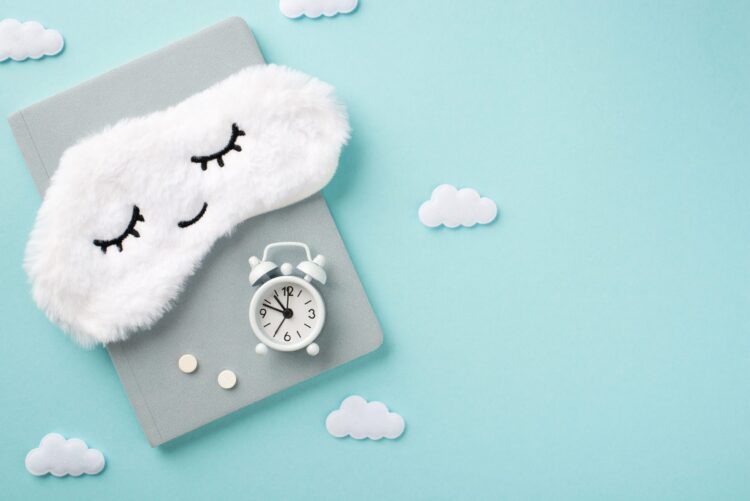When a person is in the grip of a substance use disorder, odds are their daily routine centers around just one thing: drugs or alcohol. Serving the addiction becomes the number one priority. Eventually, the substance use disorder will dictate the routines—upending a person’s job, relationships, education, and more.
Routine in Recovery
On the flip side, establishing a consistent approach to your day can be a powerful tool for a person in recovery. A reliable routine can help you fend off boredom, cope with cravings, and stay motivated to stay sober.
Of course, you’ll want to build some flexibility into your routines so that you don’t fall into a rut. Finding that balance between routine and flexibility can be challenging, but it can also be engaging and fun. Here are some suggestions for establishing routines that will serve you well.
Let’s Start With This: Establish Routines Related Directly to Recovery
As you leave treatment and enter recovery, it can be especially important to get into a rhythm when it comes to doing things that support your recovery. Will you join a 12-Step program or other sort of support group? Can you commit to meetings on a certain day at a certain time? Will you commit to regular conversations with your sponsor and/or therapist? Can you scratch the weekly after-work trip to the bar with your coworkers off your schedule?
Three Key Routines: Sleep, Eat, Exercise
When you are thinking of adding routines to your daily life, it can be helpful to think in terms of categories. Three important categories are your sleep schedule, your diet, and your exercise program. Let’s take them one at a time.
Healthy sleep is important to both your physical and mental health—both of which, of course, support your recovery. Your bedtime routine may involve a relaxing bath or a cup of herbal tea that serves as a signal to your body that it is time to rest. Limiting screen time before bed is an excellent idea as is making sure your room is cool and dark. Sticking to a regular bedtime and awakening time can help ensure you get the sleep you need while also establishing a strong start to your day.
Getting proper nutrition is another key element of supporting your recovery. Your routines around eating could take a couple of different forms. For example, you might establish a schedule of meals that are designed to make sure you get the nutrition you need throughout the day. That schedule could extend over the course of a week so that you aren’t constantly faced with decisions about what to have for your next meal. Your routine might also include deciding how often—and where—you might go out to eat. Making smart choices about dining out can help you reach your nutrition goals while still giving you the opportunity to treat yourself.
Making a commitment to exercise is yet another way to boost both your mental and your physical health. Finding an activity you enjoy is essential—and putting exercise time into your daily schedule is equally important. Even a daily 30-minute walk can have real benefits. And, of course, as your physical fitness improves, you can expand the range of exercises and activities that are part of your overall routine. Consider including both strength and cardiovascular training in your plan.
Don’t Forget: Schedule Time for the Social and the Spiritual
Sometimes we don’t think of our social life as something that needs to be scheduled. We might prefer to be spontaneous. But if we’re being honest, we know that we tend to let our social outlets get pushed aside by other demands on our time. Having a strong social network of supportive individuals is important to recovery, so make friends and family a regular part of your routine. These social interactions don’t have to be big events. A weekly phone call to a family member, a standing coffee date with a friend, one night a week devoted to playing games or knitting or talking about books or whatever—any and all of these are great ways to inject some social interaction into your routine.
As for the spiritual side of things, we aren’t necessarily talking about religion. For some, the routine of religious practice can be a comfort and boost their recovery efforts. If organized religion is not for you, you can still dedicate time taking care of your spirit. You might practice mindfulness, meditation, or yoga. You might write your reflections on any number of things in a journal. You might become engrossed in an art form—as audience, practitioner, or both. Or you might volunteer for a cause that is important to you. All of these things and more can buoy your spirit and support your recovery.
A Reminder About Staying Flexible
We want to reiterate that the establishment of routines in various areas of your life should be a tool that supports your recovery—not a punishment or a list of requirements you must satisfy. Framing your routines in a negative way is likely to backfire and could even endanger your sobriety. Be kind to yourself. If a routine isn’t serving you, replace it with one that does—as long as that replacement doesn’t involve drugs or alcohol.
End Your Substance Use Routine
At Bel Aire Recovery Center, we will personalize a treatment plan that will help you regain your sobriety and reset your life. We’ll help you establish new routines that will serve you well on your recovery journey.




